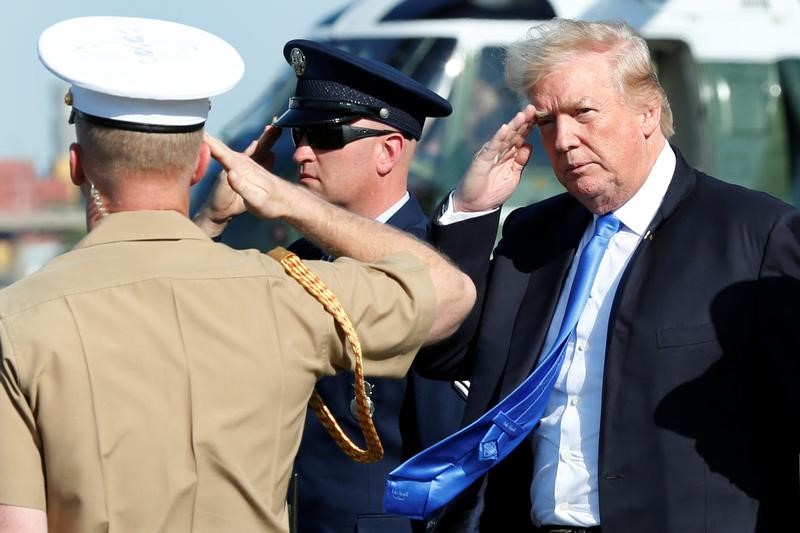By Lawrence Hurley
WASHINGTON (Reuters) - The state of Hawaii on Monday urged the U.S. Supreme Court not to grant the Trump administration's emergency request seeking to revive his plan to temporarily ban travelers from six Muslim-majority nations after it was blocked by lower courts that found it was discriminatory.
Separately, a San Francisco-based U.S. appeals court announced it would issue a ruling on the same issue on Monday.
Lawyers for Hawaii, which challenged Trump's ban in court and won a nationwide injunction blocking it, said in court papers his executive order is a "thinly veiled Muslim ban."
Trump's administration on June 1 filed emergency applications with the nine Supreme Court justices seeking to undo two different lower court rulings that blocked his March 6 order barring entry for people from Iran, Libya, Somalia, Sudan, Syria and Yemen for 90 days while the U.S. government implements stricter visa screening. The administration has said the order is needed to prevent terrorism in the United States.
Federal courts in both Maryland and Hawaii issued rulings suspending key parts of the ban. A Virginia-based appeals court upheld the Maryland ruling. In the Hawaii case, the San Francisco-based 9th U.S. Circuit Court of Appeals said on Monday a ruling is "imminent."
In deciding whether to allow the ban to go into effect, the Supreme Court is set to weigh whether Trump's comments as a presidential candidate can be used as evidence that the executive order was intended to discriminate against Muslims in violation of the U.S. Constitution's First Amendment ban on the government favoring one religion over another.
Trump during the 2016 presidential campaign called for a "total and complete shutdown of Muslims entering the United States."
Monday is the deadline for the ban's challengers to respond to the administration's request that the order be allowed to go into effect. The American Civil Liberties Union, which represents people challenging the ban in a separate Maryland case, is due to file its own response later on Monday.
Hawaii's court papers mentioned a series of Twitter posts that Trump wrote on June 5, after the administration sought Supreme Court intervention. Trump described the order, which replaced an earlier Jan. 27 order that also was blocked by courts, as a "watered down, politically correct" version of his original plan.
Hawaii's lawyers said that Trump has made "a series of barely veiled statements linking the orders to his promised Muslim ban." If he had not done so, the order may not violate the Constitution, the lawyers said.
The administration has said courts should not second guess the president's assertion that the ban was needed for national security reasons.

The court could act on the administration's request as soon as later this week.